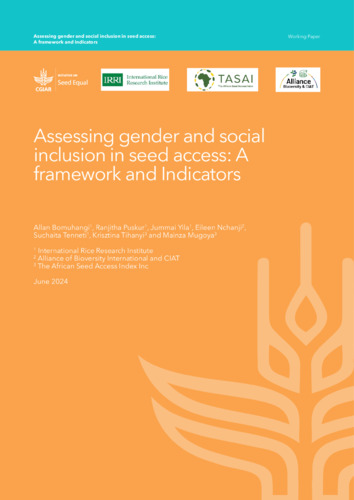Assessing gender and social inclusion in seed access: A framework and Indicators
Abstract
Access to high-quality seed is critical for agricultural productivity and farmer prosperity. Yet, systemic obstacles persist that prevent smallholder farmers in the Global South, particularly women and other vulnerable groups, from reliably accessing affordable, quality seed in adequate amounts in a timely manner from formal sources. While the past two decades have seen a growing demand for measurements, benchmarking and comparison to assess seed access and seed systems performance across and within countries, the existing seed metrics lack holistic evaluation and overlook key gender dimensions in their measurement frameworks. This suggests the need for new indicators to improve measurement of inclusive seed access. This study, undertaken as a part of the CGIAR Seed Equal Initiative, employs a multi-step process encompassing review of existing seed access metrics and gender analytical frameworks, to develop indicators for inclusive seed access across formal, informal, and integrated seed systems. This process led to the formulation of 20 indicators that were validated by key stakeholders drawn from the seed sector, offering a more nuanced analysis of inclusive seed access across three thematic areas: women’s participation in seed enterprises, breeding for inclusive access, and equitable distribution and sales models at sectoral and household levels. The paper explores how these indicators can inform policies and interventions that effectively benefit the most vulnerable seed users.

